 Go Back
Go BackShare
In the Heart of Learning: The Power of Education in Odisha’s Classrooms
By Pratiksha and Radhika Israni
Oct 28, 2024
In this blog, CSF's Radhika Israni and Pratiksha share insights from their two-day field visit to Odisha, where they interacted with students, teachers and head teachers to understand the foundational learning initiatives being driven on the ground.
For most development sector professionals, seeing the impact of our work firsthand ignites passion and strengthens commitment to give our best every day. Effective storytelling is rooted in the balance of words and images, each enhancing the other’s impact, creating a narrative that sticks with the viewer long after the story ends. Keeping this in mind, I (Radhika) embarked on a two-day field visit to Odisha in September 2024, aiming to document the real, on-the-ground impact of foundational learning efforts in schools. I was assisted by my colleague Pratiksha, who co-manages CSF’s state presence in Odisha. While I brought a communications lens to the visit, capturing stories and visuals to communicate the essence of our work, Pratiksha contributed a programmatic perspective, focusing on the practical implementation of foundational learning initiatives. Together, our combined approach resulted in a fruitful collaboration, ensuring a holistic understanding of the changing education landscape in the state.
Our objective was to capture the lived reality of teachers, students and the broader education system through photographs and stories of children and teachers. Day 1 took us to Ratnapravas Government UPS School, a vibrant primary school where we witnessed teachers inspiring young minds and students engaging with foundational literacy and numeracy (FLN) activities. Beyond the classroom, we explored how the school’s infrastructure supports learning, capturing the physical spaces where education takes shape.
Day 2 brought us to Bapuji Rout Government UP School, where we observed the Monthly Cluster-level Meeting (MCM) – a crucial initiative enhancing teaching practices at the cluster level. Since July 2023, these meetings, which are held every third Saturday of the month, have provided a platform for head teachers and teachers to receive critical training from the Cluster Resource Centre Coordinators (CRCCs), who are oriented by the District Institute of Education and Training (DIETs), following guidelines from the State Council of Educational Research and Training (SCERT). We had the unique opportunity to witness one such MCM, absorbing the collaborative spirit driving improvements in foundational learning. This field visit offered a deep dive into the educational strides being made in Odisha, capturing the essence of how policy and practice merge to create impactful learning experiences.
Unpacking Day 1 at Ratnapravas Government UPS School
Day 1 of our field visit to Odisha began with a warm welcome by children and teachers at the gates of the Ratnapravas Government UPS School in the Odapada block of the Dhenkanal district of Odisha. It was heartwarming to see children playing, their laughter filling the air, bringing back nostalgic memories of our own school days. The atmosphere was lively and full of anticipation.
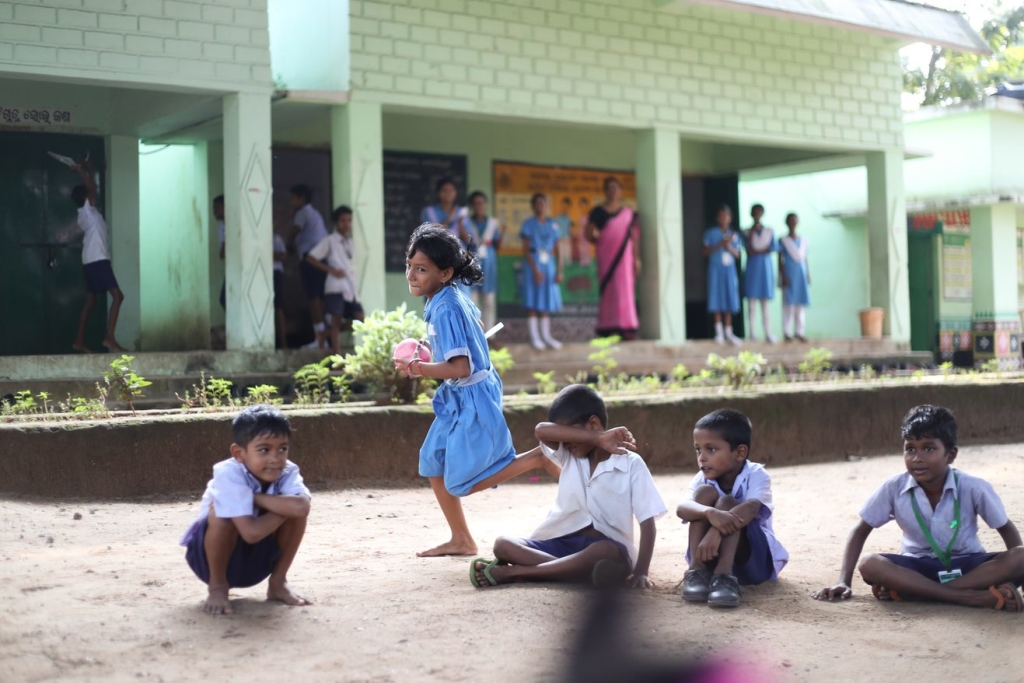
As we met the head teacher and the staff, it was evident how excited they were to have us. The teachers expressed how much it meant to them to have this platform to share their stories with the world. Their enthusiasm was contagious, setting the tone for an insightful day.
Entering the classrooms, we were struck by the vibrant, print-rich walls adorned with teaching aids. The students were highly engaged and actively participated in lessons. Teachers employed a variety of methods, including storytelling and play-based learning, making the experience both interactive and instructional. It was inspiring to see students confidently express their thoughts and ideas, building a lively classroom dynamic.
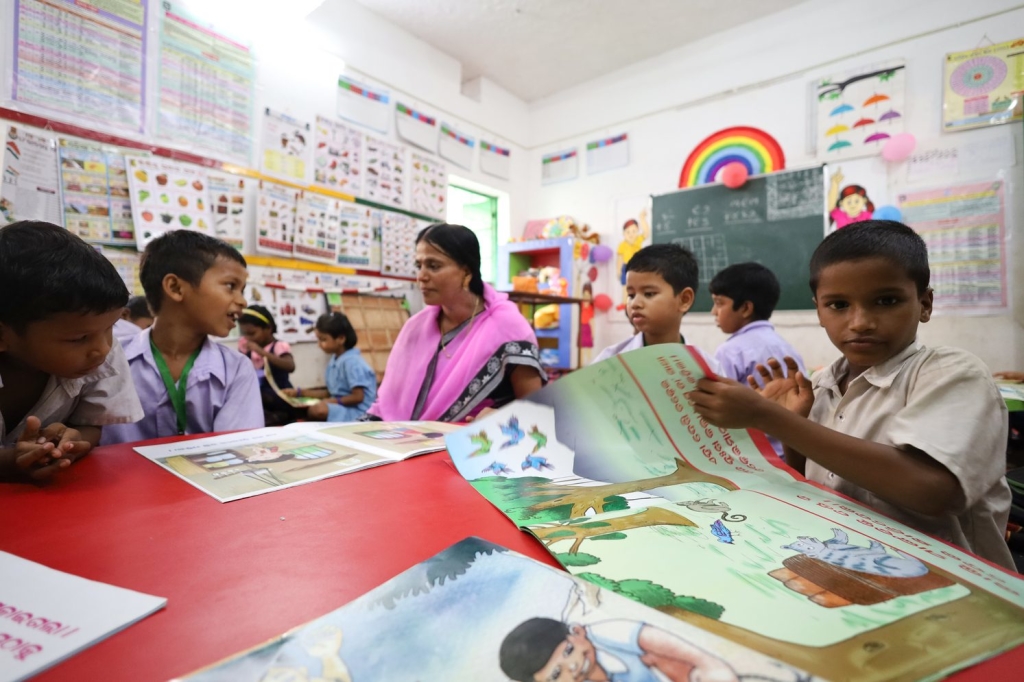
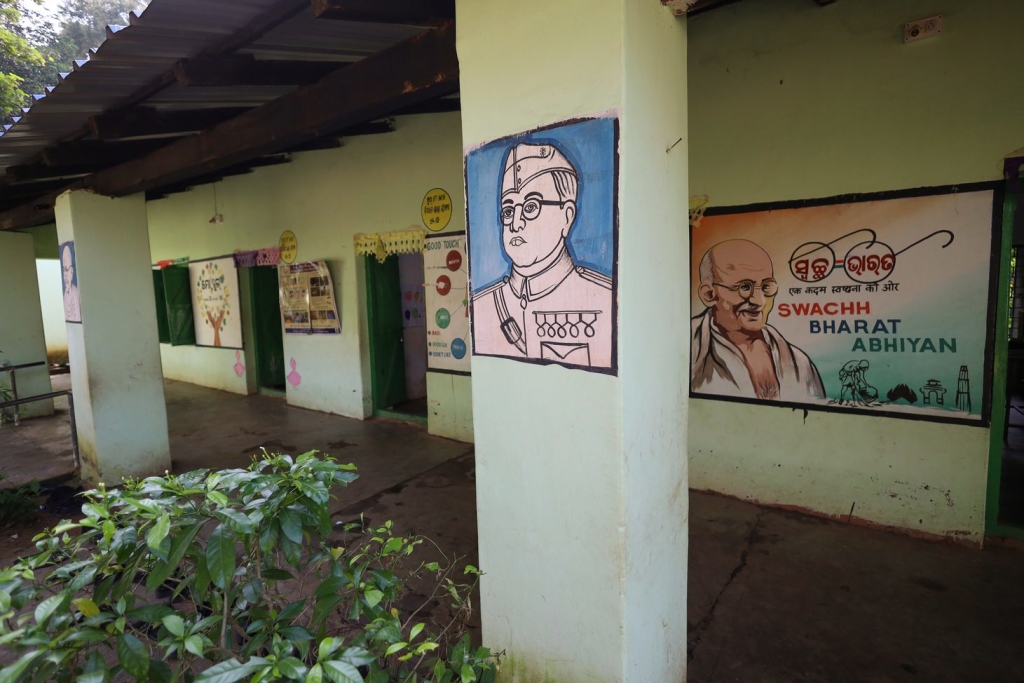
R: Motivational messages and posters in the school premises
One of the most memorable moments was hearing the heartfelt testimonials from the teachers and head teacher. Their stories were filled with resilience and passion for teaching and their commitment to shaping young minds, despite the challenges, was truly inspiring. Our first day offered us a glimpse into the school’s positive, student-centered environment.
Strengthening Foundations through MCMs on Day 2
On the second day of our visit, we arrived at the Bapuji Rout Government UP School in the Sadar block of Dhenkanal district. Having already gathered some powerful stories the day before, today felt like it would be equally special. While the principal extended a warm welcome, teachers expressed excitement about sharing their experiences. Their enthusiasm reminded us of why we were here – to bring to light the committed educators that are shaping the future of our students.
The day began with an introduction to the Monthly Cluster Meeting (MCM), where the Cluster Resource Centre Coordinator (CRCC) facilitated a learning space for head teachers and teachers to come together to reflect and share insights on their work. These meetings form the backbone of the support system that guides teachers and schools in the implementation of foundational learning initiatives. MCM summary reports, along with district reports generated by the PMU, are submitted to key stakeholders to inform decision making and problem solving within the School and Mass Education Department. Hence, these meetings, held at the cluster level, serve as dynamic platforms for teacher training and knowledge exchange, with school venues rotated within the cluster to facilitate broader participation.
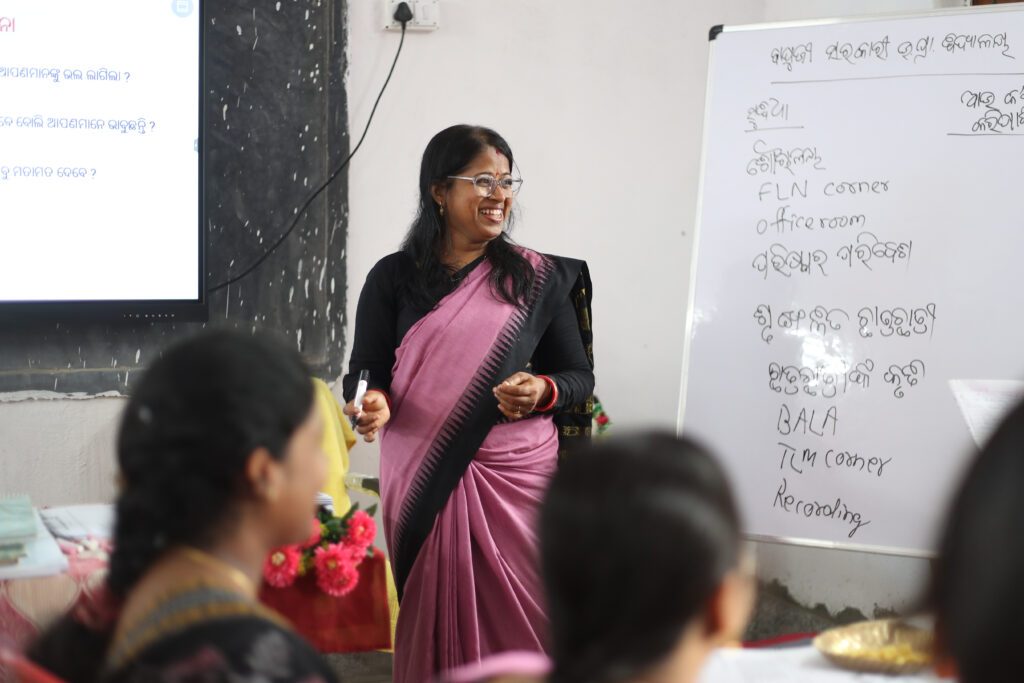
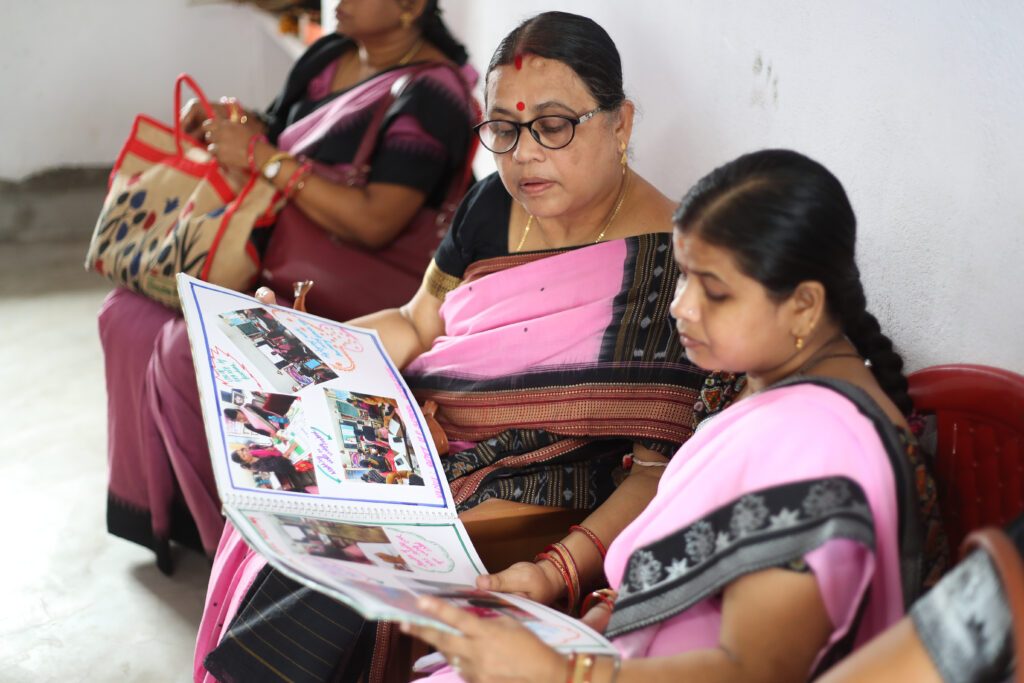
The agenda focused on a deep dive into the academic calendar for the month, with sessions on hands-on planning, assessing student learning and utilising a competency-based register to record the learning progress of students. To support teachers further, a session was dedicated to highlighting the challenges faced during classroom transactions and collaborating on strategies to improve learning outcomes. Through detailed demonstrations and lively discussions, the participants engaged in meaningful conversations, sharing their thoughts and observations with confidence.
In Odisha, this particular edition of the MCM stood out for being an all-women cluster comprising the CRCC, head teachers and FLN teachers. Seeing our educators in pink sarees symbolised not just their grace, but also the strength and potential of women driving the transformational educational journeys of children, inspiring change and hope in every classroom. The energy in the room was inspiring and their commitment to making a difference was evident in the conversations rooted in enquiry and problem-solving.
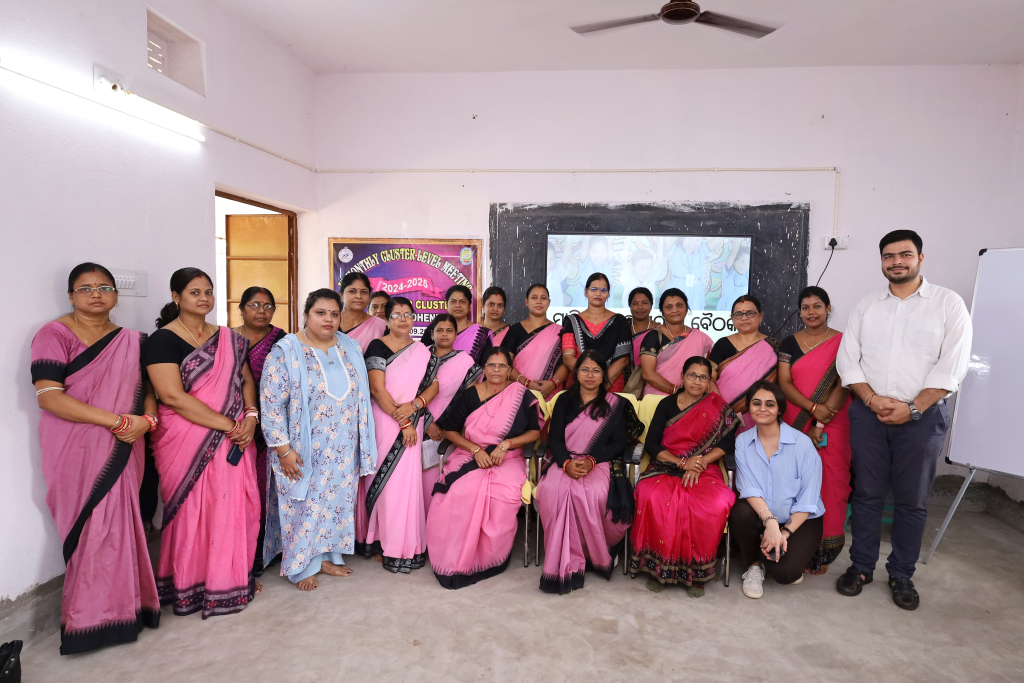
What struck us most were the personal stories shared by the teachers. One of the teachers spoke about her students being too shy to speak up at the beginning of the year and how through targeted support in Oral Language Development (OLD), they are now able to recite poems and narrate stories. Another teacher reflected on how the MCM platform had given her the confidence to voice her challenges and seek advice, creating a collaborative and enabling environment where everyone could thrive together.
The day’s learning left us with a deep sense of pride. The commitment of the state to empower its teachers by providing them with a platform to discuss, demonstrate and learn is truly commendable. The MCM observation and teachers’ stories have underscored the importance of giving educators the tools they need to succeed and the space to innovate.
As we wrapped up our two-day field visit in Odisha, the powerful narratives we encountered lingered in our minds. These schools are among over 40,000 FLN schools in Odisha, driven by the dedication of nearly 1.5 lakh FLN educators who work tirelessly to enhance student learning outcomes across the state. From the dynamic classrooms to the heartfelt stories of teachers deeply committed to their students, it was clear that education here is more than just a daily routine — it’s a pathway from learning to earning for our children.
Keywords
Authored by
Pratiksha
Project Lead, Strategic Support States , Central Square Foundation
Radhika Israni
Project Lead, Policy and Communications, Central Square Foundation
Share this on
